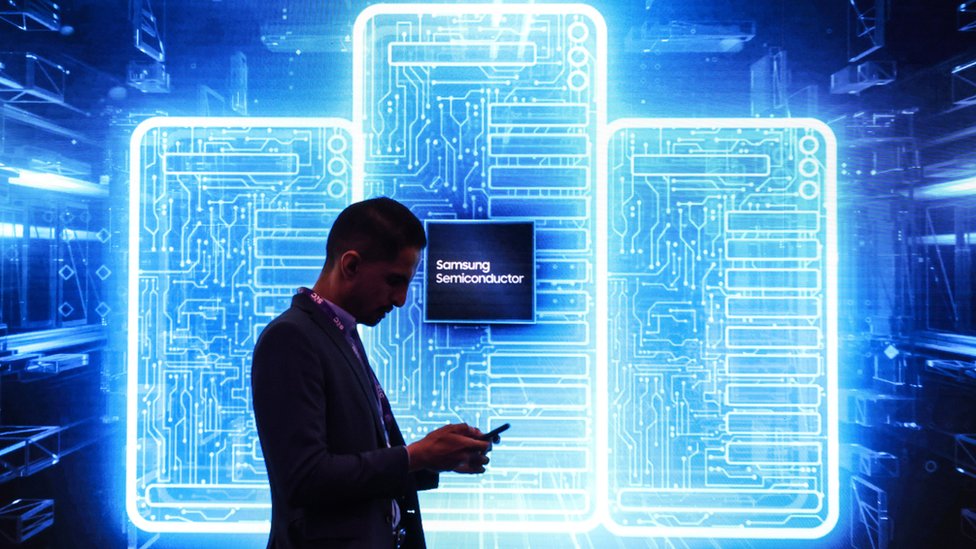
Samsung anticipates strong demand for artificial intelligence, contributing to a tightening supply of certain high-end chips and aligning with competitors in capitalizing on the resurgence of the global memory chip market.
The positive forecast from the world’s largest memory chipmaker led to a 1.8% increase in its shares following a significant rise in first-quarter operating profit. However, Samsung’s shares have experienced a slight decline this year, contrasting with SK Hynix’s notable gain, as Samsung endeavours to narrow the gap in supplying top-tier chips like high bandwidth memory (HBM) to industry leader Nvidia.
Jaejune Kim, a Samsung vice president overseeing the memory division, announced plans to expand the supply of HBM-related chips in 2024 by over three-fold compared to the previous year. Samsung has commenced mass production of the latest HBM chips, including the 8-layer HBM3E designed for generative AI chipsets, aiming to capitalize on the AI boom that has favoured SK Hynix, the primary supplier of HBM3 chips to Nvidia.

Samsung intends to initiate production of the 12-layer version in the second quarter, with expectations that the latest HBM3E products will constitute two-thirds of its HBM output by the end of the year. Analysts view these objectives as ambitious, with potential segmentation in the supply chain anticipated between Nvidia, AMD, Samsung, and SK Hynix.
Samsung also disclosed plans to enhance offerings of high-end solid-state drive (SSD) products to meet the growing demand from AI servers, projecting a tightening supply of high-end memory chips towards the year-end due to capacity focusing on HBM.
In the first quarter, Samsung recorded a 13% increase in revenue, reaching 71.9 trillion won ($52.14 billion), driven by a substantial surge in memory chip revenue, which soared by 96%. This surge was partly attributed to the AI boom. Operating profit rose to 6.6 trillion won, marking the highest figure since the third quarter of 2022. The chip division, historically a major contributor to Samsung’s operating profit, returned to profitability, generating 1.91 trillion won in the March quarter, a stark contrast to the previous year’s loss.
Samsung’s mobile devices business reported a 3.51 trillion won operating profit, slightly lower than the previous year, despite shipping approximately 60 million smartphones, reclaiming its position as the world’s top smartphone vendor from Apple. Rising costs, including increased memory chip prices, impacted margins from flagship Galaxy S24 smartphones launched during the quarter.
Samsung attributed the success of the S24 phones to AI functions, which drove sales and maintained double-digit profitability. Approximately 50% of customers purchased S24 phones for their AI features, with 60% regularly utilizing these functions
Discover more from TechBooky
Subscribe to get the latest posts sent to your email.















